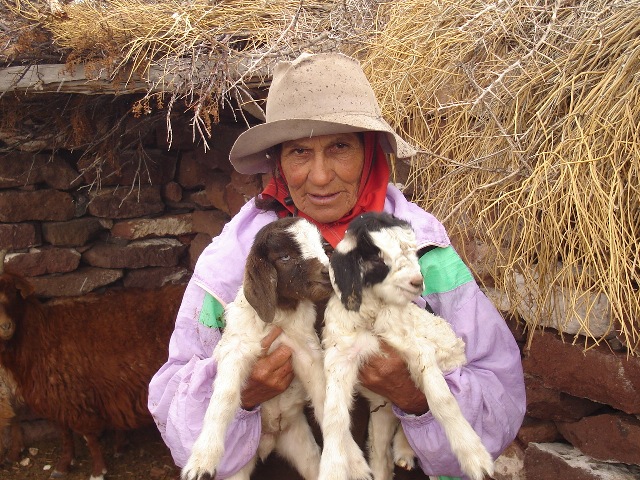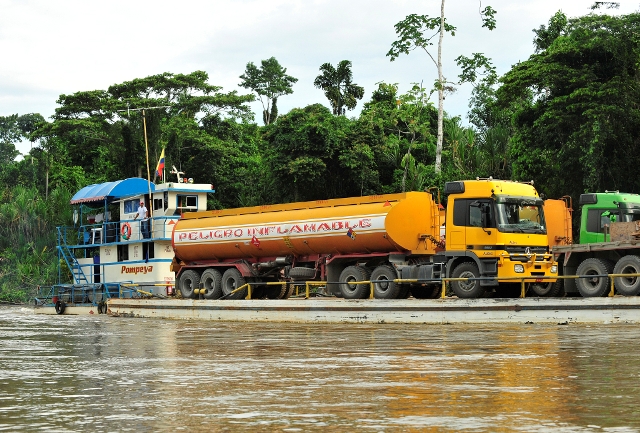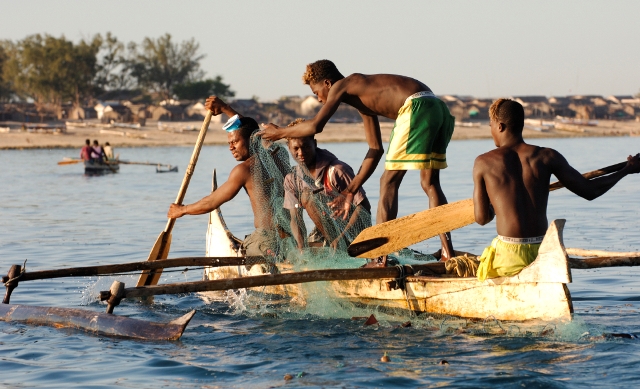Tackling Our Planet's Most Pressing Challenges at the Nexus of Human Well-Being and the Conservation of Nature
Our planet's population is nearing 7 billion. The nexus between human well-being and conservation of nature needs our attention more than ever.
That's why The Nature Conservancy (TNC), the Wildlife Conservation Society (WCS), and the National Center for Ecological Analysis and Synthesis (NCEAS) have announced the launch of SNAP (Science for Nature and People), a groundbreaking collaboration aimed at solving the world's most pressing conservation and human development challenges.
We announced the launch this week at the Clinton Global Initiative.

Lucia Forquera is one of many goat herders participating in a "green" cashmere project in Patagonia that protects local wildlife habitat. © Carolina Marull/WCS
As the world's population continues to grow, the need to address the correlation between nature and the food, water, energy and security needs of people has never been greater. With SNAP, our organizations are knocking down the traditional walls between disciplines, institutions, and sectors, and harnessing the scientific expertise on all our teams. SNAP will tackle high-profile problems where we see clear pathways to the implementation of solutions.
Our two first projects:
Western Amazonia: Balancing Infrastructure Development and Conservation of Waters, Wetlands, and Fisheries
The Amazon Basin is the largest river system in the world, and the Western Amazon contains the largest areas of flooded forests, and wetlands in the basin -- areas critical to food provision and drinking water for tens of millions of people as well as to subsistence and commercial fisheries. How might conservation of waters and wetlands and local food security and economies dependent on them be balanced with the large-scale infrastructure development already underway, such as roads and expanding agricultural frontiers and hydrocarbon exploitation, as well as planned dams needed to support the growing urban populations? The SNAP Western Amazonia Working Group will promote integrated river basin management and planning informed by science and "translated" into a language and format usable by decision-makers.

SNAP seeks to balance infrastructure development in the Amazon Basin with the needs of local people. ©Julie Larsen Maher/WCS
Integrating Natural Defenses into Coastal Disaster Risk Reduction
The recent tsunami in Japan showed how even monumental built capital (levees, sea walls and artificial barrier islands) can be overcome by just one severe environmental event. Similarly, research and observations in the wake of recent hurricanes that have affected the Caribbean islands and the United States have demonstrated that natural systems can play critical roles in buffering people against coastal storm impacts. SNAP will focus on exploring how conserving existing coastal habitat and restoring what has been lost can help protect coastal communities and livelihoods from the impacts that result from storms - such as hydro-meteorological hazards like Hurricanes Sandy and Katrina and other extreme environmental events.
SNAP is leveraging the highly productive synthesis research model, using working groups first established by NCEAS, to find the solutions to these challenges.

Sustainable fishing practices benefit both wildlife and local livelihoods in coastal Madagascar. © Julie Larsen Maher/WCS
Together, the founders of SNAP have staff members in more than 65 countries, providing the capacity to actively test strategies that conserve nature and benefit people. The collaboration will soon be adding partners from the humanitarian sector to extend its expertise and reach.
As founders, WCS, TNC and NCEAS hope SNAP will become the go-to place for practitioners and policymakers from around the world to seek and find solutions to their most pressing problems around human well-being and the conservation of nature.
